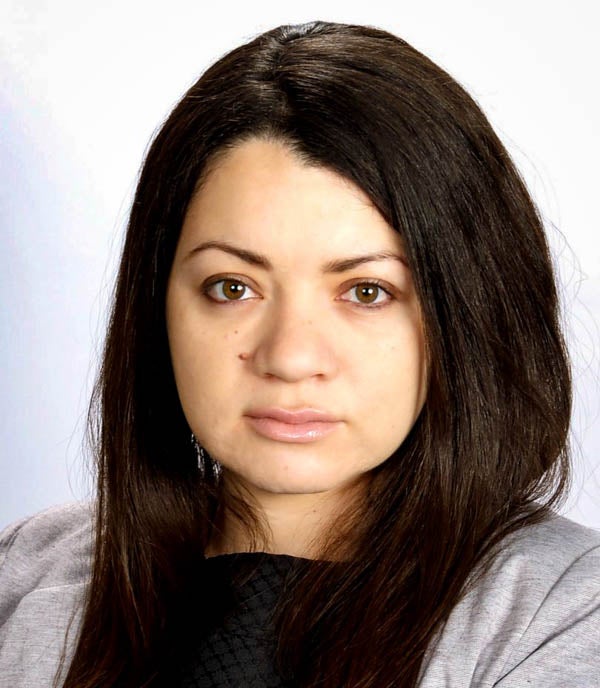Faculty Highlight: Esther Díaz Martín
Professor Esther Díaz Martín is an Assistant Professor of Latin American and Latino Studies and Gender and Women’s Studies at the University of Illinois at Chicago. She was born in the state of Jalisco, Mexico and grew up in California’s San Joaquin Valley, and is a first-generation scholar. Dr. Díaz Martín received her Ph.D. in Spanish with a Graduate Portfolio in Mexican American and Latina/o Studies from the University of Texas at Austin. She completed her doctorate degree with the support of the Inter-University Program for Latino Research (IUPLR)/Mellon Dissertation Fellowship. Her current manuscript in progress project focuses on the sound and voice of Latina feminisms as heard across contemporary radio. Her scholarship, centering on the intersections of sonic, oral, and aural knowledge-making in Latinx popular culture and literature is published in Chicana/Latina Studies, Diálogo, and Spanish and Portuguese Review. She is a faculty fellow at the Institute for the Humanities at UIC for the 2021-2022 academic year.
Prof. Esther Díaz Martín Interview Heading link

Tell us about yourself.
I’m a first-generation immigrant scholar. I was born in Jalisco and grew up in a rancho with my three siblings and my mother, who was a proud city girl from Guadalajara. My father worked as a seasonal farm worker in California and, back home in Mexico, he did some farming and other odd jobs like delivering propane tanks. While my parents had very limited formal education, my mother is an avid reader and storyteller, (and a skilled seamstress). She is one of my biggest influences in terms of my love for learning, my sense of identity.
What is your educational background?
I am a proud product of public school education. First in Mexico, and then from 5th grade to my master’s in California. My BA is in Political Science with a minor in Latin American Studies from California State University Stanislaus (Go Warriors!). One of the highlights of my undergraduate education was spending a semester in Chile and visiting Pablo Neruda’s home in Isla Negra. I also visited Machu Picchu, in Peru, and spent a week in the beautiful Atacama Desert. My MA is in Spanish with a secondary teaching credential from San Jose State University. I was a high school teacher and a medical translator for a brief period of time before earning my PhD. in Iberian and Latin American Languages and Cultures from the University of Texas at Austin in 2018. A total of 26 years in school!
What do you like about your field of study?
Cultural studies is broadly about understanding what people make (products) and what people do (practices). You can approach it in so many different ways. For instance, you can think about history of words, stories, objects, or rituals and/or you can read them closely for their intertextual connections or for how they achieve meaning. When studying literature and other types of narrative forms it leads to questions regarding how we come to agree and evolve on societal values. I appreciate the process of unpacking (unboxing) multiple layers of meaning, it’s such a privilege to get to do this for a living!
Are you currently working on any projects?
Yes, I am currently finishing edits on my book, Latina Radiophonic Feminism(s): Gender Politics into the Digital Age, which centers the work of Latina radio and podcasting hosts at the turn of the 21st century and mostly in the Southwest. To extend this research, I am gathering data about Latinx podcasting in the Midwest. I am working with a research group on Latinx Sound Culture Studies through the Crossing Latinidades Humanities Initiative to develop a Latinx Sound Studies syllabus and eventually a co-edited volume that, it is our hope, will help to articulate the field of Latinx Sound Studies.
What classes are you teaching this semester?
Contemporary Latina Narratives is a survey of fiction, memories, music, digital media and film recently authored by Latinas. It is an exploration about who we are (as the various subject intersections that make up Latinas) and how we choose to tell our stories. I love that we get to explore different mediums and that we get to talk about small details within texts very deeply. I love hearing all of the connections that students bring to their interpretations of the text.
What do you like about the LALS Program?
We have an awesome collection of talented scholars. We all encourage and support each other. I get to teach students that remind me of myself and the types of challenges I faced as a first-generation working class student. There is a lot to love here!
When you’re not teaching or researching, how are you spending your free time?
I generally do a lot of mom things, like making mac-n-cheese, loading the dishwasher, and making random cardboard crafts and Baby Alive doll clothes as designed by my 7-year-old daughter. In my “me time,” I am currently playing Miles Morales on PS4.
Do you have any book, movie, or city recommendations you would like to share with LALS students and faculty?
Yes, read Rain of Gold by Victor Villaseñor. It tells the story of families from Jalisco who suffered through the Mexican Revolution and the Great Depression in the US. It paints a vivid emotional image of what our ancestors went through in the early 1900s as they faced the violence of war, then the humiliation and abuses of second-class status in the US (including Chicago). It has a lot of Mexican humor, mestizo spirituality, and some cheesy machismo to boil your blood.